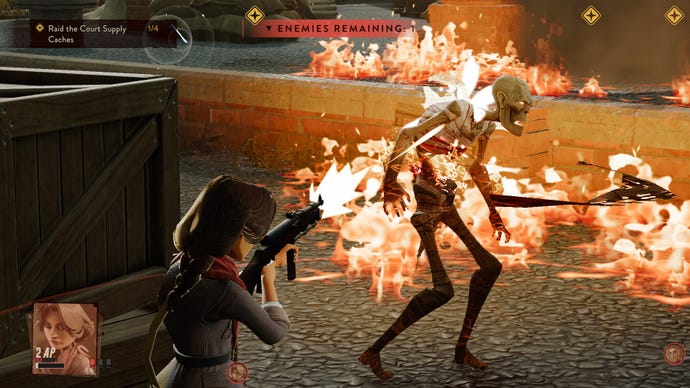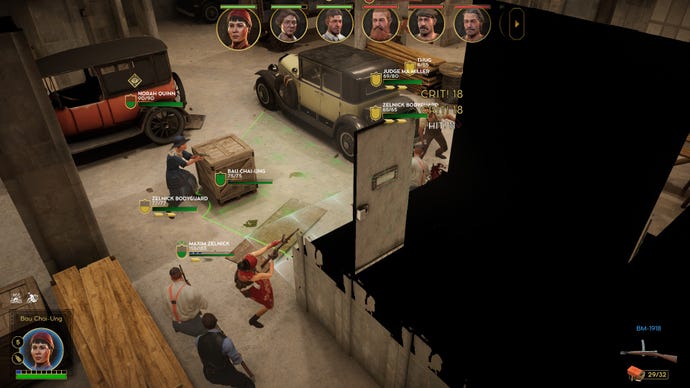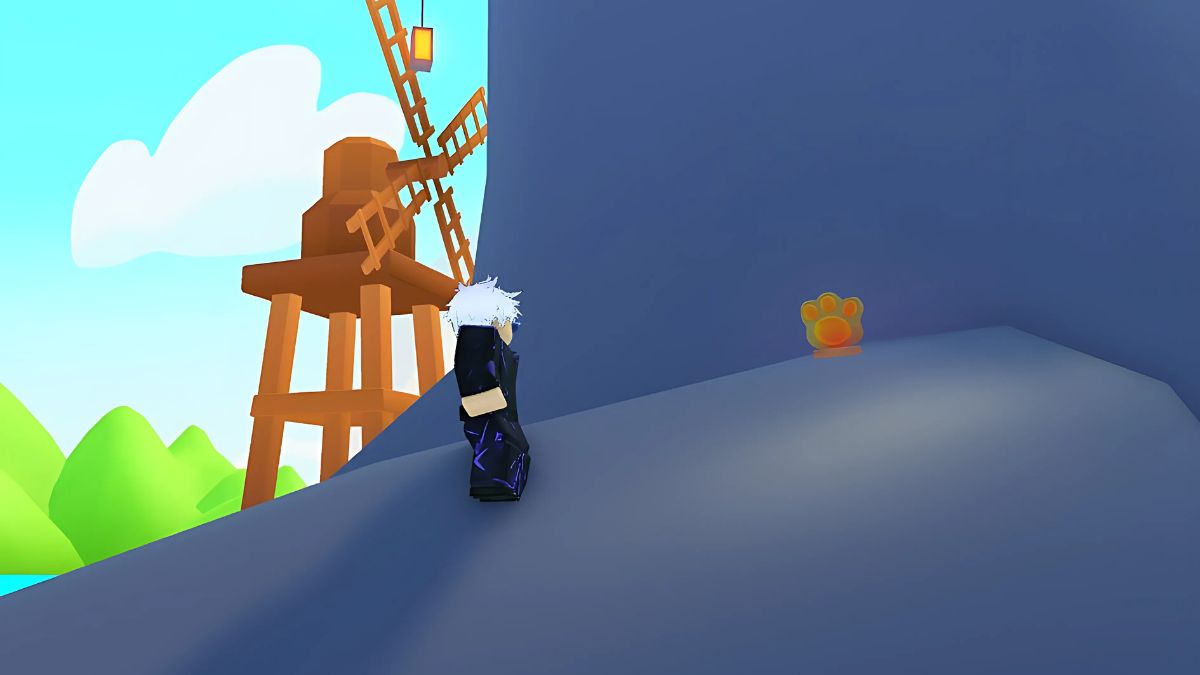Last October, Paradox Interactive announced that they and development studio Harebrained Schemes were breaking up, following underwhelming sales of Harebrained's 1930s-set XCOMlike, The Lamplighters League. The publishers had already made layoffs at Harebrained in the run-up to release, implying that preorder numbers were low; ultimately, Paradox wrote it off as a $22 million flop. At the time of the "parting of ways", Paradox chief operational officer Charlotta Nilsson washed her hands of XCOMlikes entirely, commenting that "a new project or sequel in the same genre was not in line with our portfolio plans".
We ourselves were mixed on The Lamplighters League. "A strong turn-based foundation and colourful setting held back by grind, blind chance, and a need for efficiency over tactical variety," was Sin's verdict. But other outlets were more enthused, and the Steam user review consensus remains positive, even now that Paradox have yanked support. When I spoke to deputy chief executive officer Mattias Lilja at Paradox's Media Day earlier this month, I had to ask about the game's fortunes, and Paradox's decision to steer away from XCOMlikes in future.
"I can start with how we see the reality of that game, or the reality of that genre," Lilja told me. "When we started [that project], we read it as a fairly lively genre, where there were many games, tactical games that could coexist. We often think in terms of, who's the number one in the genre, what does it mean to be number two or number three, and if you're number three, is that still a viable option for the long term? If it is, maybe you want to go there - you're not going to be number one, but maybe number three or four or five, whatever.
"When we released The Lamplighters League, it quickly became very obvious to us that this was not the game that people wanted, and we were not going to be able to save it," he went on. "It was reviewed OK - I liked it too. But it was not an audience of any size that would mean this would be sustainable for a long time."
(For context, Paradox are in the habit of publishing games you can play for years, even decades, with lashings of DLC and free updates. This business model, which pre-dates Steam's early access format, has led to some consternation among players regarding how many resources the developers set aside for paid DLC, versus the main game.)
"We're starting to see that there might be maybe a second place, but there's no third - there might not even be a second place in the tactical gaming space," Lilja continued. "So maybe there is only one game. There are certain genres that are like that. They have one game and everybody else is sort of not catching up or finding a viable existence, as the second choice in this genre."
 Image credit: Rock Paper Shotgun/Paradox Interactive
Image credit: Rock Paper Shotgun/Paradox Interactive
Paradox had strong suspicions that The Lamplighters League would flop, Lilja confirmed, based on preorder numbers. As such, the apparently mutual decision to split with Harebrained came about pretty quickly after release.
"The game was basically commercially dead on arrival," Lilja commented. "And the studio, this is what they do. And it is very specific, what people are good at in [games development] - certain talents, you can move, but the core team of a game is really hard to pivot to something else. They're not going to be very good at it.
"And it's the same with the grand strategy people - they're probably not going to be very good at other genres, either. So it is quite specific, the understanding of [these games] - they're such complex products, and you know them specifically. So we were in a position, where we said we can't use this team effectively, and they were like, we want to do what we're good at. So good, let's go our separate ways.
"And the decision happened really quickly at launch. We can cheat a bit by looking at pre-orders. It's very rare that game has low pre-orders and then takes off at launch. We have not seen it, somebody else might have. The opposite might be more true - good pre-orders, but then weaker sales post-launch, that could happen if you have a very niche product.
"So we we quickly came to an agreement with the devs that we needed to go set our separate ways. We're not going to invest more in this type of game, and they wanted to make more of these."
In hindsight, I'd have liked Lilja to spell out is what precisely he means by "the tactical gaming space", which obviously encompasses a bundle of subgenres and approaches, not least Japanese tactics RPGs such as Final Fantasy Tactics. I did clarify with him that by "number one" in the genre he meant XCOM. It's also worth noting that if Harebrained have a reputation for tactical games, they aren't just in the business of XCOMlikes - their previous project, Battletech, is a different kettle of mechafish entirely.

One thing I did raise is that The Lamplighters League isn't Paradox's first stab at publishing an XCOM-style tactics game with that particular combination of grid- and turn-based combat. The company's past dalliances with the format include Empire Of Sin from Romero Games, which released in 2020. Our reviewer Tom Senior called it "a wonderfully ambitious mashup of systems wrapped around a lovely, if extremely cliched, caricature of the golden age of gangster fiction", with some significant flaws born of said mashing-up, and far too many bugs.
Paradox deemed themselves "not satisfied" with Empire Of Sin at launch, though the disappointment was masked by 2020 being "the best year in Paradox's history". So why did they keep trying with the XCOMlike in its wake?
"There we messed up the execution, quite a lot," Lilja told me. "The Lamplighters League was a competently made game, decently reviewed, and it did work. The fact that Empire Of Sin didn't work was kind of obvious, unfortunately, and that was also on us. So it didn't say anything about the market, really. It just said that if you don't make a good game, you're not going to fly in any genre. We might have may read that wrong but yeah, we didn't release a good game, and that is always punished."
Speaking as a fan of yer XCOMs, to say nothing of yer Gears Tacticses and yer Mutant: Year Zeroes, I find the idea that there is precious little appetite for games comparable to XCOM distressing. Is this really more than a gut response from Paradox, and if so, how do they explain the situation? Is the audience for such games just too small, or are people overly wedded to XCOM, a series which hasn't received a fresh instalment since 2016?
"Execution is everything," Lilja reiterated. "That's the logic that I'm trying to refer to. So maybe there's XCOM and nothing else. Or somebody else makes a [successful XCOM-style game] and I look like an idiot, but right now, that's our thinking."

Paradox's chief creative officer Henrik Fåhraeus offered similar arguments later that day, when I asked for his thoughts on Lilja's assessment of "the tactical gaming space".
"I don't have data on this, but it's my distinct feeling that for this target demographic, it's winner takes all," he said. "We need to - well, we don't need to, but we should look at why that is. Because it seems to me that the survival crafting genre, for example, is infinitely big. But turn-based tactical? It seems to be more 'number one or nothing'.
"Then again, I like other turn-based tactical games, like Phoenix Point," he added. "But there seems to be something to that. It would be interesting to delve into that. For what it is, I think Lamplighters League is a good game."
The ray of hope here is that Harebrained Schemes are still alive and kicking. Their first post-Paradox project, Graft, looks splendiferous. It takes place in a "dying space station" and has you willingly or inadvertently modifying your own personality by plugging in cybernetic implants laced with the memories of their previous owners. It's also, as some readers noticed, a real-time game. Fingers crossed that this isn't an early indication of a great dearth of XCOMlikes to come.

 1 month ago
97
1 month ago
97





![Anime Reborn Units Tier List [RELEASE] (November 2024)](https://www.destructoid.com/wp-content/uploads/2024/11/anime-reborn-units-tier-list.jpg)


